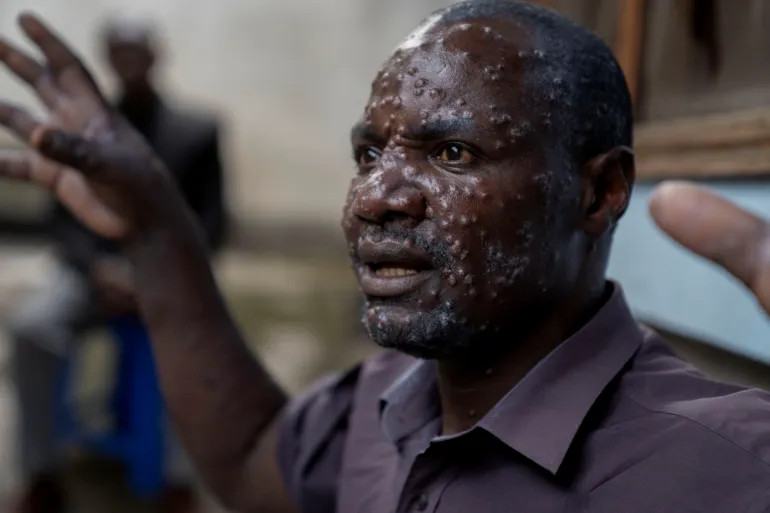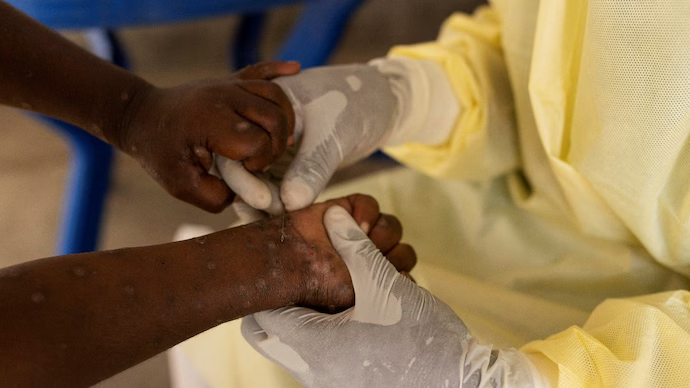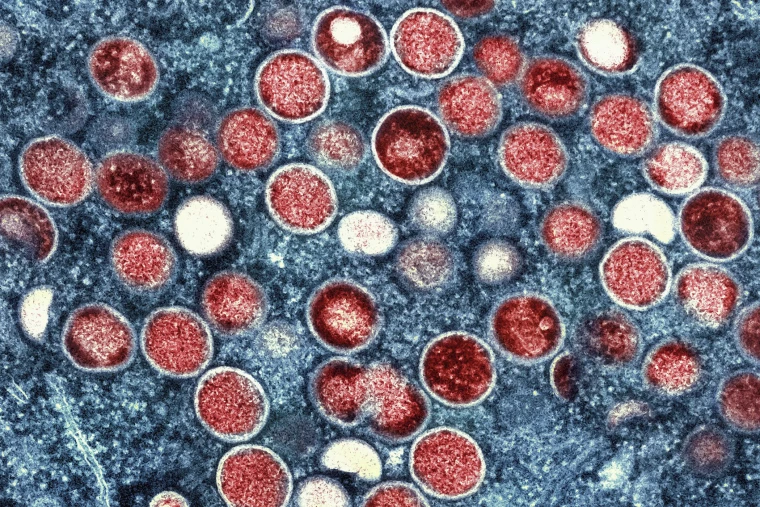Manoj Highlights:
The Global Health Threat of Mpox
The World Health Organization (WHO) recently declared Mpox, formerly known as Monkeypox, a global health emergency amid a sharp rise in cases worldwide. This alarming announcement highlights the rapid spread of the disease, particularly in Africa, and its emergence in countries like Sweden. The global health community is now mobilizing to address this threat, reminiscent of the challenges faced during previous pandemics. This article explores the critical developments surrounding Mpox, the reasons behind WHO’s emergency declaration, and the implications for global public health.
WHO Declares Mpox a Global Health Emergency
On the heels of a growing number of Mpox cases, the WHO has officially declared the outbreak a global health emergency. This decision followed an emergency meeting of the UN health agency’s committee, which assessed the situation’s severity and potential for international spread. WHO Director-General Dr. Tedros Adhanom Ghebreyesus expressed deep concern over the escalating crisis, emphasizing the need for immediate global action to prevent further transmission and protect vulnerable populations.

The declaration marks the first time since the COVID-19 pandemic that the WHO has issued such a high-level alert, underscoring the potential threat Mpox poses to global health security. By categorizing Mpox as a global health emergency, the WHO aims to prompt coordinated international efforts, including enhanced surveillance, public awareness campaigns, and accelerated research on vaccines and treatments.
The Rising Cases of Mpox in Africa
Mpox has been endemic in certain regions of Africa for decades, but the recent surge in cases has raised significant alarm. The disease, which is caused by the Mpox virus, is primarily transmitted to humans through contact with infected animals, such as rodents and primates. However, human-to-human transmission can occur through direct contact with lesions, bodily fluids, or respiratory droplets.

In the past few months, several African countries have reported an exponential increase in Mpox cases, leading to widespread concern among health officials. The outbreak has been particularly severe in West and Central Africa, where limited access to healthcare and inadequate disease surveillance systems have exacerbated the situation. The rising cases in Africa have prompted calls for increased international support to help contain the outbreak and prevent its spread to other regions.
Sweden Reports Its First Case of Mpox
The global reach of Mpox became evident when Sweden reported its first confirmed case on Thursday, just a day after the WHO declared the disease a global health emergency. The case, which involved a traveler returning from an African country, has sparked fears of a wider outbreak in Europe.

Sweden’s public health authorities have since initiated contact tracing efforts to identify and monitor individuals who may have been exposed to the virus. The case in Sweden underscores the ease with which Mpox can cross borders, particularly in an interconnected world where international travel is commonplace. It also highlights the importance of global vigilance and preparedness in responding to emerging infectious diseases.
Understanding Mpox: Symptoms, Transmission, and Prevention
Mpox is a viral disease that shares similarities with smallpox, though it is generally less severe. The symptoms of Mpox include fever, headache, muscle aches, and a characteristic rash that progresses to fluid-filled blisters and then scabs. The disease typically lasts for two to four weeks, and while most cases are mild, severe cases can occur, especially in individuals with weakened immune systems.
The virus is transmitted through close contact with an infected person or animal, as well as contaminated materials such as bedding or clothing. Preventive measures include avoiding contact with animals that could harbor the virus, practicing good hygiene, and using personal protective equipment (PPE) when caring for infected individuals. Vaccination against smallpox has been shown to provide some protection against Mpox, and research is ongoing to develop targeted vaccines and treatments.
The Global Response to the Mpox Outbreak
In response to the Mpox outbreak, countries around the world are ramping up their public health measures. The WHO’s declaration has prompted governments to increase surveillance, enhance laboratory testing capabilities, and raise public awareness about the disease. Efforts are also being made to strengthen international cooperation, with health agencies sharing data and resources to combat the spread of Mpox.

In Africa, where the outbreak is most severe, international organizations are providing support in the form of medical supplies, funding, and technical expertise. Vaccination campaigns are being considered for high-risk populations, and research into the virus’s transmission dynamics is being prioritized to inform future containment strategies.
Implications of WHO’s Global Health Emergency Declaration
The WHO’s declaration of Mpox as a global health emergency has far-reaching implications. It signals the seriousness of the outbreak and the need for a coordinated international response. The declaration also serves as a call to action for countries to invest in their public health infrastructure, improve disease surveillance, and ensure that healthcare systems are prepared to handle potential outbreaks.
For the general public, the declaration emphasizes the importance of awareness and vigilance. Individuals are encouraged to stay informed about the disease, practice preventive measures, and seek medical attention if they develop symptoms consistent with Mpox. The global community must work together to prevent the further spread of the virus and mitigate its impact on public health.
The Path Forward in Combating Mpox
The declaration of Mpox as a global health emergency by the WHO marks a critical juncture in the fight against this emerging infectious disease. As the world grapples with the ongoing COVID-19 pandemic, the Mpox outbreak serves as a stark reminder of the need for robust global health systems and international cooperation in responding to public health threats.
Moving forward, it is essential that countries remain vigilant, continue to monitor the situation closely, and invest in research and public health initiatives to combat Mpox. By working together, the global community can prevent the further spread of the virus and protect vulnerable populations from its potentially devastating effects.
To Get Latest News Updates Click Here
